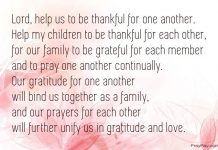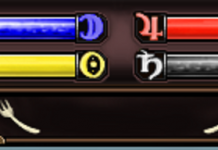If you ask yourself, “Why can’t I stop drinking?” and are ready to quit alcohol, there is good news. Medications can help you reduce drinking, avoid relapse, or abstain from alcohol … even if you’ve already tried 12 step meetings or psychotherapy.
FDA approved medications such as acamprosate, disulfiram and naltrexone can both reduce your desire to drink and promote abstinence. Here, we review how well these medications work and evaluate whether or not more is needed from you. Can you really stop drinking just by taking pills? We explore here.
Table of contents
Medications to stop drinking
Alcohol use disorder is a medical term for problem drinking. Check out the Alcohol Use Disorders Identification Test on page 17 of the WHO guidelines for alcohol screening to learn more about how doctors diagnose problem drinking. If you think that you have a drinking problem (or have been diagnosed with one) and want to cut back or stop drinking totally, there are medications which can help you.
The medication you use will depend on your doctor’s judgment and your personal preferences and goals. Be prepared to try the medicine for at least 3 months, although your doctor may recommend that you stay on the medication for a year or longer if the treatment is working. Why so long? Well, because relapse to heavy drinking is very common within the first year of sobriety. But as each medicine has a different mechanism of action and your response may be better to one type of medication than another, be flexible and work with your doctor to achieve your goals. The main pills used to help you stop drinking include:
Acamprosate – Acamprosate acts on the GABA and glutamate neurotransmitter systems and is believed to reduce insomnia, anxiety, restlessness, and unpleasant mood which is usually characteristic of intermediate term abstinence from alcohol. Although the effectiveness of Acamprosate is still not proven, Acamprosate has been helpful to people who have determined a goal of abstinence.
Disulfiram – Commonly known as Antabuse, this medication inhibits the intermediate metabolism of alcohol. The idea is that taking Antabuse will motivate you to stay away from drinking in order to prevent the symptoms that drinking will cause. In other words, if you take a Disulfiram tablet and THEN drink, you will get sick. The result is a buildup of acetaldehyde and common reactions include flushing, sweating, nausea, and increased heart rate.
Naltrexone – Naltrexone works by blocking opioid receptors, which results in reduced alcohol craving and reduced reward in response to drinking. Naltrexone particularly helps reduce relapses and is often used for people who experience occasional slips in the first months of sobriety. Naltrexone is less effective in maintaining abstinence.
Can pills help you stop drinking?
Given the evidence from clinical trials, and anecdotal experience…yes, medications such naltrexone, acamprosate, and disulfiram as can help you stop drinking. In fact, people who do not respond to psychosocial approaches alone are particularly strong and responsive candidates for medication treatment. But you must have a willingness to be and stay sober in order to stay off the booze. And furthermore, no single approach is universally successful or appealing to everyone. So, experts recommend that you COMBINE alcohol dependence medications with the full range of effective treatments to increase your chances of staying sober. These include:
- Behavioral therapy for alcoholism
- Behavioral support from your prescribing doctor
- Professional medical counseling
- Professional psychological counseling
- Peer support groups (plus 12 step alternatives)
In sum, no matter which alcohol dependence medication you use, if you have a goal of abstinence, or if you can abstain from drinking even for a few days prior to starting the medication, you are more likely to have better outcomes. And you cannot rely on medications alone. You will need to identify other treatment options that can work for you in the long run, if you want to stay sober.
Got questions or comments? Leave them in the comments section. We’d love to hear from you.
Reference sources: Medications To Treat Alcoholism
HHS and NIAAA Clinician’s Guide to Helping Patients Who Drink Too Much
alcohol.addictionblog.org
Help me stop drinking at night
A very common question I get from people trying to stop drinking is how to get over the cravings to drink on an evening. In today’s video blog I reveal the reasons why this is happening and more importantly how to break the routine.
If you get home from work and desperately want to reach for the bottle opener. Or perhaps your evening meal doesn’t feel right without a glass (read bottle) of wine.
Then you absolutely must watch this video because you may be surprised that to hear that it is not the alcohol that is making you want to drink!
The Problem With Alcohol
We are all tricked by the socially accepted view of what alcohol is and more importantly what people who have lost control of it look like. We think we can’t possibly be an alcoholic because we don’t fit the stereotype that the media and movie industry has created.
I believed my drinking was normal because I didn’t drink first thing in the morning, I didn’t have a DUI and I didn’t sit in the park swigging cheap booze out of a brown paper bag.
However, I was drinking every night of the week. Most evenings I drink between one and two bottles of wine, before falling into bed by 8pm at the latest.
I would drink even more at the weekend
So forget the image of what alcoholism looks like. If you are drinking more than you want – you have a problem
Why not decide now and discover how to stop drinking without willpower, alcohol anonymous or expensive rehab.
Craig Beck
The Stop Drinking Expert
www.stopdrinkingexpert.com
This is my story of what alcohol did to me and how I found help, hope and a new life.
By the time I got the help I needed, my drinking had taken me to a very dark place. I had no appetite and had to force myself to eat a few liquid foods to function – drink was much more important to me than food. I could not sleep. At night in particular thoughts whirred round my head and I had just to focus on breathing deeply to keep from having a horrible panic attack. I often got up during the night and had another drink as that was the only way I could relax sufficiently to get back to sleep.
In the morning it took all my effort to do the simplest task – feed the cats and the fish, get the children off to school (that might trigger the ‘reward’ of another drink, which could be the first or the second of the day) – and then get myself off to work. By lunchtime, I desperately needed another drink and would seek out a pub away from the office where no one would see me.
By the end of my drinking I was snatching every possible chance to drink just to help me carry on with my day and struggle through to the end of it. At night, once in my bedroom I would have my last drink and fall briefly asleep again until I woke up at the same time every night (4am, give or take a few minutes EVERY night) and the whole struggle to carry on and get through the day would begin again….
I was surrounded by people but incredibly lonely. I would spend more and more time isolating in my bedroom with just my hidden bottle for company.
Although I knew that my family were affected by my drinking, I was still unaware of how much they saw and suffered. Sometimes I was convinced that no one could tell I had had a drink – but then they would arrive home, look at me and they would know – and I would feel angry with them for spotting it and with myself that I had hurt them again.
In the end, my family confronted me. They had already made a few telephone calls and had three clinics to recommend to me. They wanted me to go into one of them. The choice was mine. I didn’t care which one but had had enough of the constant pressure from them about my drinking. I gave in.
It was the best decision I made in my life. The first day I felt very sorry for myself but within 24 hours I began to feel that I was in the right place. I was with people who had been through similarly bad experiences with their drinking . We were all in the same boat and fighting this together.
The counselling I received was second to none. I began to understand what it was in my personality that had taken me to where I was in my life and to my dependence on alcohol. Very soon I was laughing, no longer needing a drink to function. I began to take an interest in the things around me, in myself and other people. I could see a future. Whereas before I had realised I could not live anymore with alcohol, I struggled to see a life without it. Now I could see that life without alcohol before me and I wanted it.
That was 3 years’ ago. Today I am happy to say I am free of the obsession with alcohol and live a happy and fulfilling life. I go out to parties and dinners and laugh and have fun – without drinking. My children and family are proud of me. I feel as if I am a much better person because of my experience and I have more compassion and understanding for others.
If you are in the misery of drinking too much, feeling lonely and knowing that you are making others unhappy too, do something about it. There is hope for everyone. Get the help that is there for you and start living a happy and fulfilled life again.
www.thehaynesclinic.com









